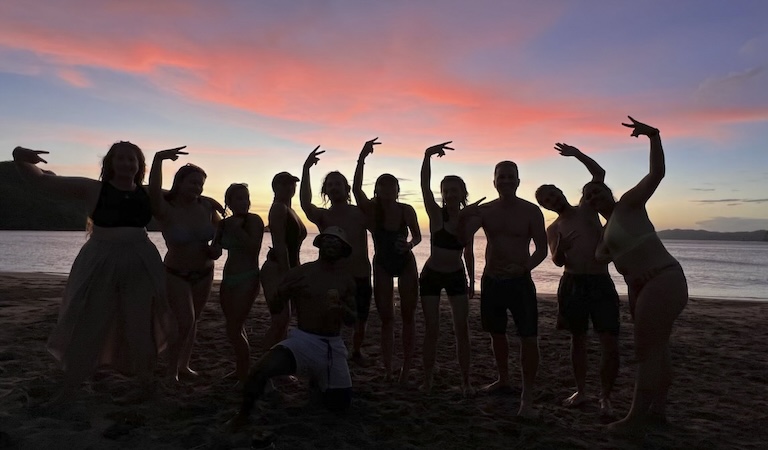Summer Research, From Lab to Field
December 5, 2023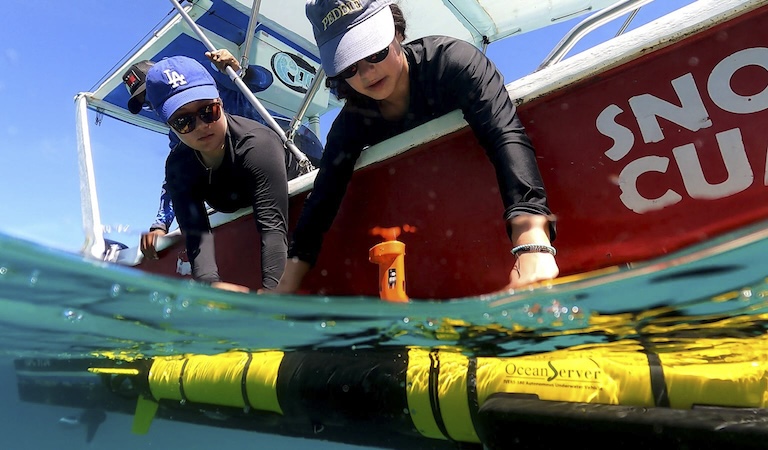
Last summer, Harvey Mudd College engineering major Emily Barr ’26 and computer science and mathematics major Angelina Rodriguez ’26 took their research out of the lab and into the field—or rather the bay in Costa Rica.
Joined by classmates Holly Chen ’24 and Alisha Chulani ’25, the Harvey Mudd team spent the better part of a week in Cuajiniquil, Costa Rica, more than 3,400 miles from campus.
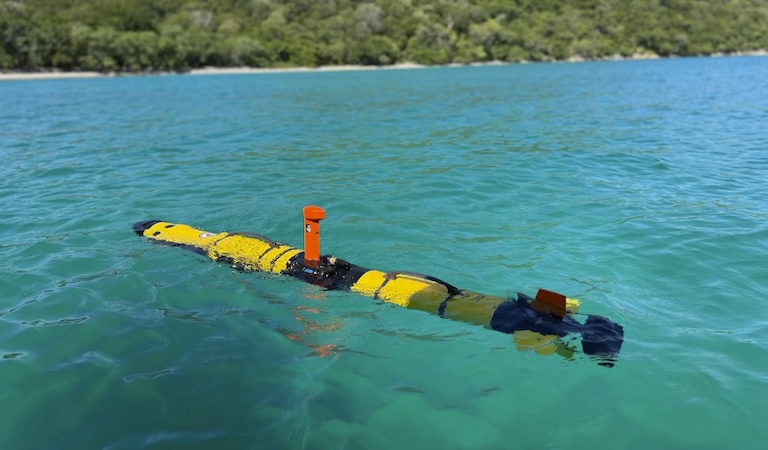
Barr and Rodriguez are members of the Lab for Autonomous and Intelligent Robotics (LAIR), a Harvey Mudd research laboratory led by Chris Clark, emeritus professor of engineering, that is focused on multi-robot systems and their applications in the field. Through the College’s Summer Research program, the Mudders joined peers from the Shark Lab at California State University, Long Beach, and graduate students from the University of Costa Rica to work on a National Science Foundation funded autonomous underwater vehicle (AUV) seafloor mapping project of the Santa Elena Bay.
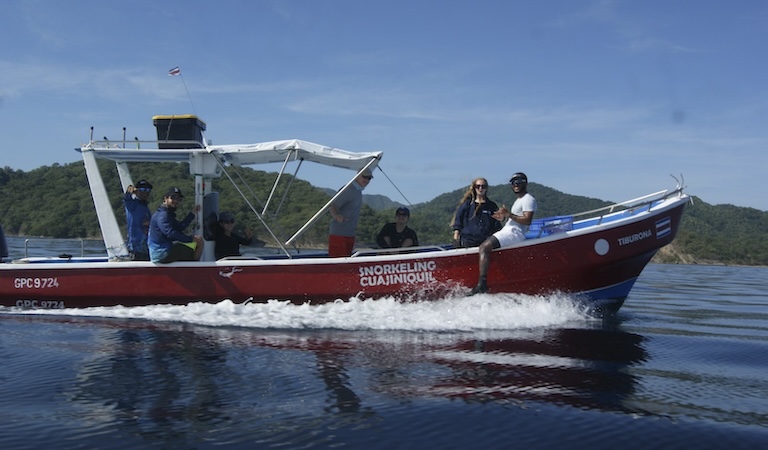
“The bay is a very desirable habitat for numerous marine species including turtles, sharks and stingrays,” Rodriguez says. “We were needed to create maps of the bay’s seafloor with our AUV to better understand what makes this habitat so appealing to its marine life.”
Barr says, “The graduate students from the University of Costa Rica were so welcoming and great teachers! They did an amazing job showing us their thesis work and teaching us how to help them collect data.”
The Harvey Mudd team was responsible for programming the IVER-3 AUV routes and processing the sonar data it collected, a task they trained for back at the Barnard Field Station lake in Claremont, California.
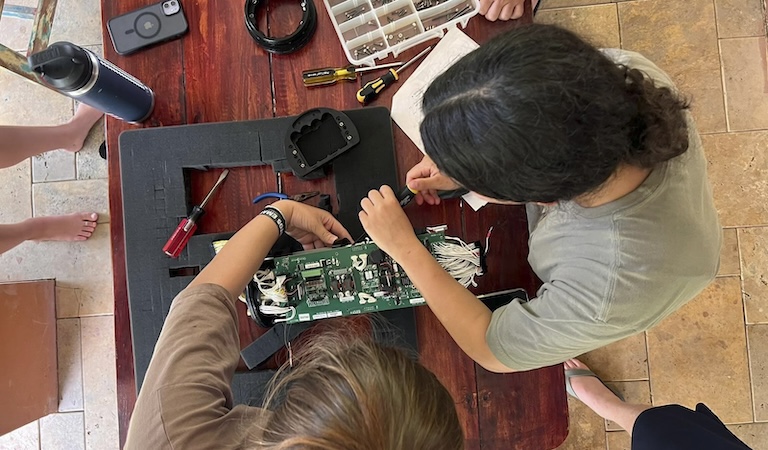
“In Costa Rica,we typically would spend the day out on a boat,” says Barr. “We would return at about three or four in the afternoon and spend the rest of the night unloading data and creating new missions for the AUVs work the following day.”
Mudders were also able to take breaks from their work and enjoy their tropical surroundings.
“We would immerse ourselves in the Costa Rican culture by going into town, conversing in Spanish with locals and participating in ecotourism,” Rodriguez says. “We visited a local beach and snorkeled above the coral reefs which was especially fun since we could ask the marine biologists that we were working with about every organism we saw.”
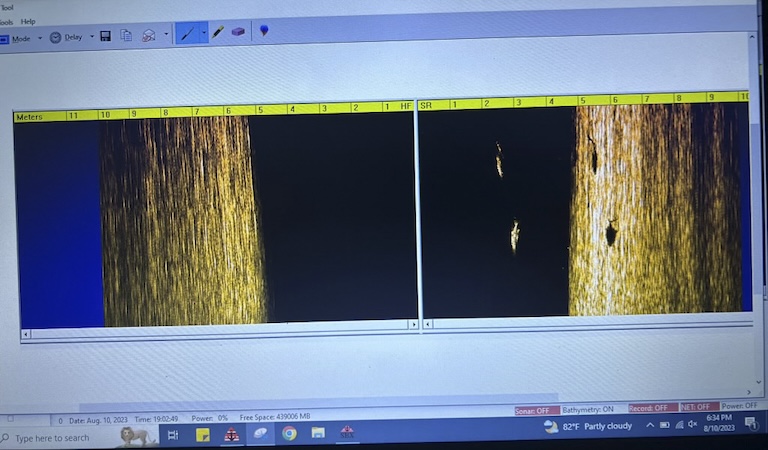
For Barr and Rodriguez, the experience of participating in international, interdisciplinary work like this has been personally meaningful. “It was amazing to physically see our work’s impact and its applications,” Barr says. “For example, with this project, it was important to encompass engineering into typically biology-focused research since it allows for better and easier data collecting. By using AUVs, we were conducting less dangerous scans and not putting human divers at risk in deep water or using boats to drag mapping devices. In this way, we’re helping collect better data for biologists with a less disruptive impact on local species in the mapping areas.”
“I initially felt a bit out of place working in an engineering research lab,” says Rodriguez, referring to her CS/math major. “I didn’t fully understand how I’d be useful to the team, but after a few days on the job, I realized how much intersectionality there was between computer science and engineering. This experience has expanded my horizons and shown me that my major doesn’t limit me to a sit-down job. There are plenty of career opportunities I can pursue.”
Barr says, “I think interdisciplinary work is super important in the real world, since no problems can be solved by one person, one team or one field. It was great seeing the application of Mudd’s values through work that I’m really proud of. Now, I definitely have a huge interest and admiration for marine sciences.”
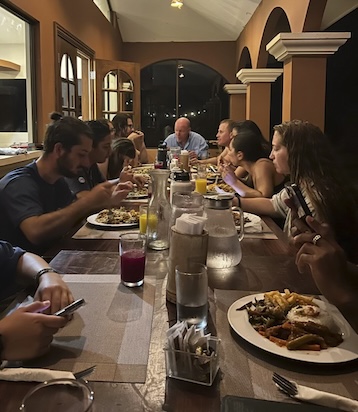
Rodriguez says, “We were definitely very proud of ourselves at the end of the trip. At first, I felt overwhelmed since we technically had less experience than the upperclass students on our team. But we kept up, adapted to the fast-moving field work lifestyle and successfully produced useable data for an entire section of the bay.
“It was an amazing experience that showed us how our titles as first years did not dictate the work we could complete and the teams that we could become a part of. I highly recommend that everyone apply for undergraduate research opportunities at Harvey Mudd so they can experience this as well.”
Summer Research at Harvey Mudd
